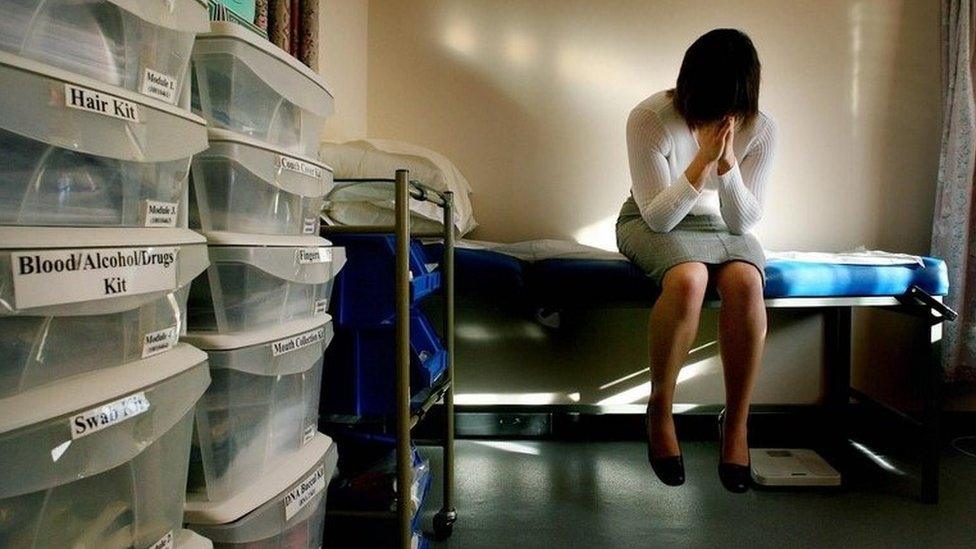Rape victims to get chance to meet their abusers
- Published
These women say they would like to tell their abusers about the harm they suffered
For the first time in Scotland, victims of rape and domestic abuse will be able to formally meet those who harmed them.
In a process called restorative justice victims of crime, such as sexual abuse or assault, can ask for a face-to-face meeting with those convicted.
Ministers plan to make it "widely available" across the country by the end of this year.
Some women's support groups are concerned it could re-traumatise victims.
Restorative justice has been used in Scotland in the past, but mainly for low-level youth offences and it has only been available in a small number of areas.
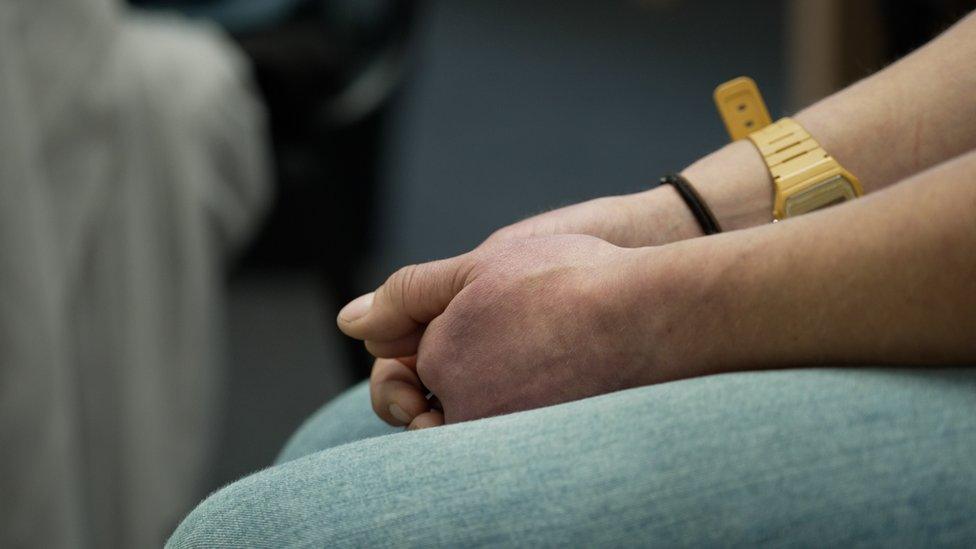
It is voluntary for both victims and perpetrators and often involves months of risk assessments and preparation before a supported meeting takes place.
Countries including Denmark, Finland and New Zealand already offer restorative justice to victims and perpetrators of crimes of a sexual nature.
Scotland is now launching a specialist hub for victims of sexual assault, based in Glasgow and a national hub for all crimes, which will start with a pilot in Edinburgh, Lothian and the Borders.
There will also be an option for victims who have suffered secondary harm or trauma from the criminal justice system itself. They can ask to meet the police officers, lawyers or prosecutors who handled their case.

'I have a voice'
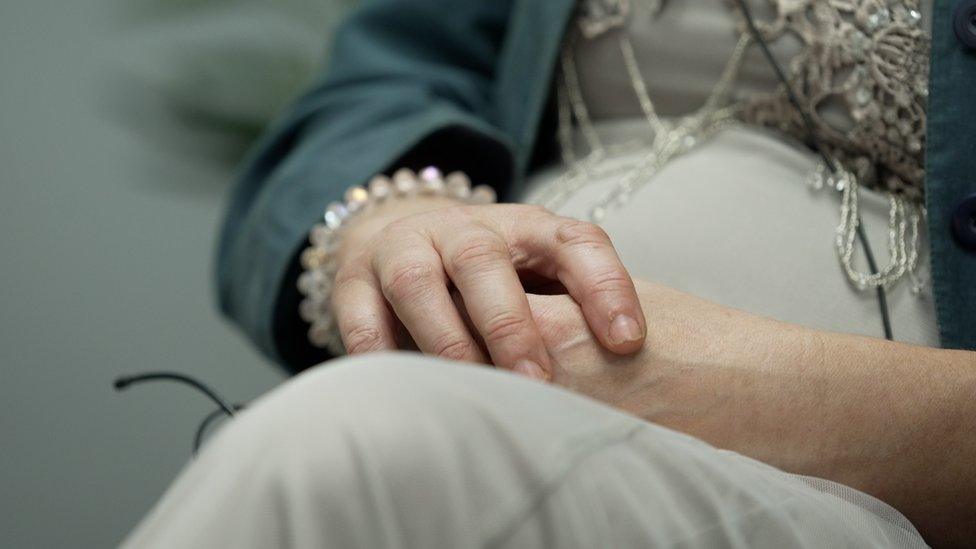
Lucy, not her real name, is one of a number of victims of sexual harm who have already asked to meet those who harmed them.
"I have been through the criminal justice system three times with three different perpetrators," she says. "All of them were convicted. I just felt like a statistic. Not a person."
She suffered domestic abuse from three former partners. One ex-partner held a stiletto to her throat. Another was even more violent.
"He karate-chopped my neck one time. He would wait for me to get undressed and then push me out the door and force me to sleep outside," she says. "He would hold a pillow over me. Hold me down…"
That is the man she would like to meet through the restorative justice process.
"With domestic abuse, you feel like you are the person who is wrong," she says.
"I thought it was my fault. Now it is not about him. They can't manipulate you anymore. They can't take your voice away anymore. It is not about you but about them. Whether they become accountable or not it is for you to stand up and say, I have a voice."

Heal the harm
The organisation Thriving Survivors is already supporting Lucy and a number of other women who wish to confront the perpetrators from their past.
It will be offering the specialist service across Scotland and supporting the victims.
Chief Executive Ashley Scotland believes it is up to the survivors to choose.
"I think this could be life-changing for people," she told the BBC.
"Lots of people, when they enter into the criminal justice system, very much lose their voice.
"Restorative Justice offers people the opportunity to experience justice in a new way and a way that will really heal the harm that has been caused."

'No longer felt the fear'
Ailbhe Griffiths, who endured a harrowing sexual assault in the Republic of Ireland at the age of 21, decided to meet the man who was sentenced to nine years for raping her.
She had been been thinking about it for eight years, and had a series of meetings with the probation service over a six-month period beforehand to prepare her for the encounter.
"I used to fantasise about encountering him and the things I might want to say to him, questions I might want to ask," she told the BBC Radio's Good Morning Scotland programme.
"I have to say it was one of the most profound experiences of my life. I had lived for many years with this kind of monster in my head, a non-human entity. Because I thought of him as a monster, it made me feel disempowered, because you can never defeat a monster.
"The minute I walked into the room, I just saw a normal man sitting on a chair and it completely transformed my perception of him. I felt totally empowered by that, because I no longer felt the fear.
"I wanted to ask him 'why did you do it?' and 'did you intend to kill me?' because that was a possibility at the end of the assault. He did answer those questions. It was not a logical explanation but he told me, through his eyes, what motivated him to do that.
"That gave me an enormous sense of closure which I would never have got through the criminal justice system."
Ms Griffiths said an apology was not part of her motivation, but ultimately she did receive one after the meeting.
"A few days afterwards I got a phone call from one of the facilitators saying he wanted to give me a message to say he was sorry for what he had done and was upset all weekend about it. I could never have anticipated that, but I think it was the power of the meeting that really changed things for him as well."

Coercive control
Sandy Brindley of Rape Crisis Scotland is concerned about the potential impact on victims - especially those who have suffered coercive control in the past - and she wants to see more detail about exactly how it will be done.
She said: "We want to make sure that nobody ever feels under any pressure to engage with this if it's not the right thing for them.
"But also, for people who do want it I think we need to make sure there are safeguards in place because we have a real concern about sex offenders who can be really manipulative and I think there is some worry about the potential for using this process to cause more harm.
"So I think we need to make sure it's set up in a way to minimise that risk, because the last thing that we want to do is cause any more harm to somebody who has already been through so much."
In 2017, the Scottish government said it did not envisage restorative justice being used for victims of sexual harm. Its position has now changed. Ministers say it will be handled very carefully.
Justice Secretary Keith Brown said: "We understand there are issues around and we have got to do this in a sensitive way and make sure we train people to conduct this kind of activity in a sensitive way and then the people get that benefit. That is the path we have chosen - to make sure we do it with the right experts in a sensitive way."
Related topics
- Published28 March 2022
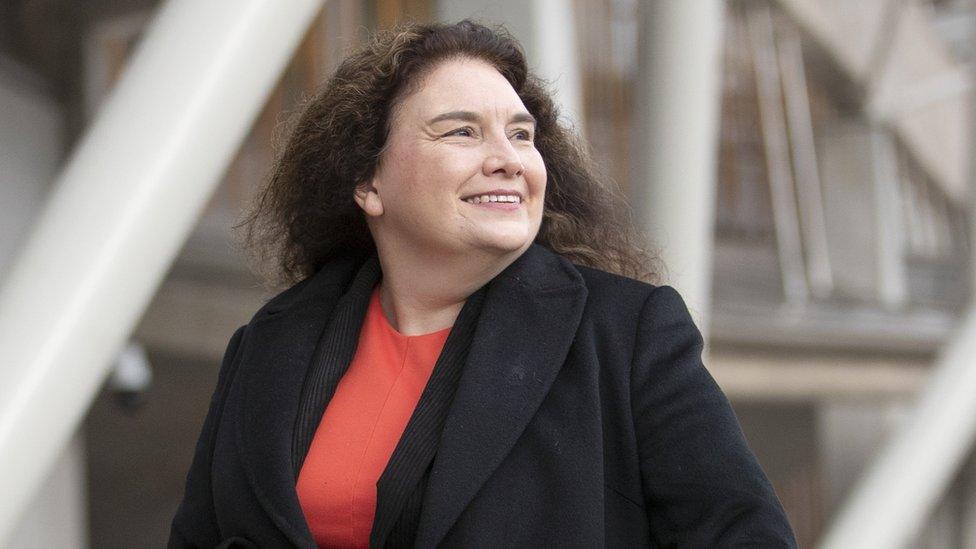
- Published22 August 2019
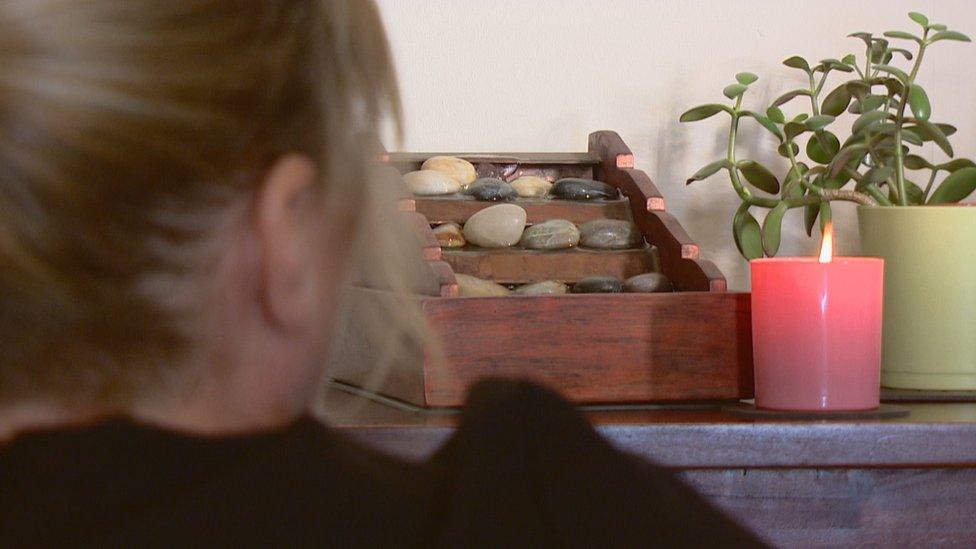
- Published16 November 2017
